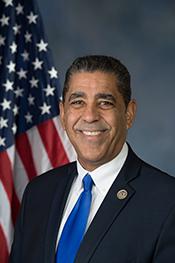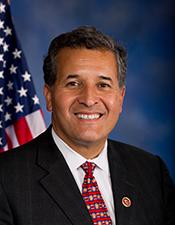H.R. 4274: REMIT Act of 2025
The REMIT Act of 2025 aims to alter the financial landscape surrounding money transmitting businesses, focusing specifically on the regulation and taxation of remittances. Here’s a breakdown of the main components:
Overview
This legislation is designed to limit the federal government's ability to impose excise taxes and fees on businesses that transmit money. This includes both formal businesses and informal systems that help send money across borders.
Key Findings
- Importance of Remittances: Remittances are crucial financial flows, particularly for individuals from diaspora communities who send money back to their home countries. These transactions, while often small (a few hundred dollars), collectively amount to a significant global market.
- Impact of Fines: Previous attempts to regulate remittances through fines have not stopped the flow of money. Instead, they have pushed consumers to use unregulated methods.
- Risks of Informal Systems: Informal value transfer systems (IVTS) can be appealing due to their lack of documentation and anonymity, but they also pose risks related to money laundering and terrorism financing.
- Criminal Activity Concerns: Reports have indicated that some IVTS are linked to criminal organizations and are used to facilitate money laundering and the funding of terrorist activities.
Excise Taxes and Fees on Money Transmitting Businesses
The bill establishes new requirements governing the imposition of excise taxes and fees on money transmitting businesses:
- The federal government cannot require such businesses to pay taxes or fees unless the Secretary of the Treasury certifies to Congress that the proposed tax or fee will not:
- Increase opportunities for money laundering or other illicit financial activities.
- Place an undue burden on the businesses that transmit money.
Definition of Money Transmitting Business
This legislation defines a "money transmitting business" as any licensed sender of money or any entity that engages in the transmission of currency, funds, or any value substitution. This includes formal and informal systems for transferring money, whether domestically or internationally, outside the usual financial institutions.
Implications
By limiting the government's ability to impose taxes and fees, the bill seeks to ensure that money transmitting businesses can operate more freely, potentially increasing their use and mitigating reliance on informal systems that pose financial crime risks. It addresses both the necessity of remittances for economic stability in receiving countries and the challenges posed by illegal financial activities.
Relevant Companies
- MA (Mastercard): Might be affected due to changes in the regulatory landscape for money transfers, potentially enhancing their competitiveness against informal and unregulated systems.
- V (Visa): Similar to Mastercard, Visa could experience impacts in terms of transaction volume and regulation, as remittance-related fees are prominent in operational discussions.
- WU (Western Union): As a major player in the remittance market, the company may face direct effects due to new regulations impacting its business model and market position.
This is an AI-generated summary of the bill text. There may be mistakes.
Sponsors
9 bill sponsors
Actions
2 actions
| Date | Action |
|---|---|
| Jul. 02, 2025 | Introduced in House |
| Jul. 02, 2025 | Referred to the Committee on Ways and Means, and in addition to the Committee on Financial Services, for a period to be subsequently determined by the Speaker, in each case for consideration of such provisions as fall within the jurisdiction of the committee concerned. |
Corporate Lobbying
0 companies lobbying
None found.
* Note that there can be significant delays in lobbying disclosures, and our data may be incomplete.








































